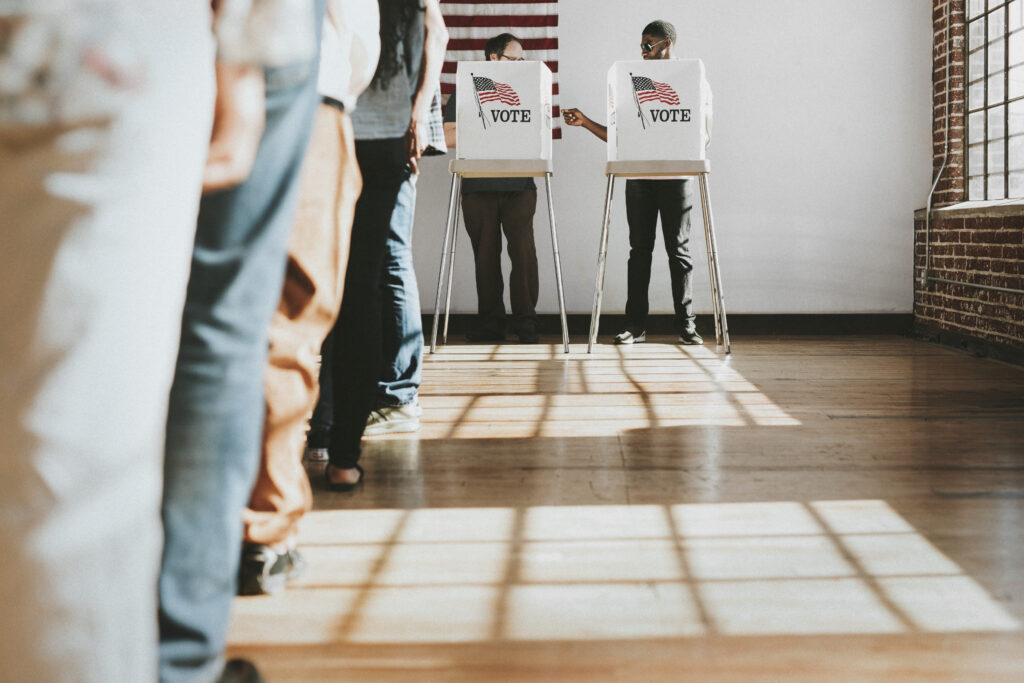Election audits are crucial to understanding the 2020 election, but they will not – indeed, they cannot – be the final word. They’re not designed to provide a smoking gun, and it’s reckless and counterproductive to suggest otherwise.
Unfortunately, sensationalist claims, from both sides of the political aisle, have created false and exaggerated expectations for Americans across the political spectrum. Breathless claims of hacked voting machines and nefarious algorithms abound, but the most compelling evidence has always pointed toward vulnerabilities being exploited within the system, rather than security being breached from without. There aren’t foreign agents hiding in the closet, but there might be American citizens – perhaps even trusted “experts.”
Similarly, many Republicans seem to think that the audits will somehow result in the election outcome being overturned, and many Democrats seem to share that belief, albeit from a very different perspective.
The reality, however, is that audits aren’t designed to capture the evidence necessary to reveal the truth about the shadow government that operated this election. The real truth will only be revealed from on-the-ground investigations. Audits can, however, be an invaluable tool to help guide those investigations.
Audits can reveal abnormalities, but only good old fashioned investigations can explain those abnormalities and tell us whether laws were broken and whether fraud took place.
The Amistad Project has been investigating the 2020 election since before the first ballots were even cast. The election audits are confirming that we’re looking in the right places, but they can’t do the job for us.
The 2020 election was hacked from within, not from without. Audits can show that something was wrong, but they can’t make the connection between hundreds of millions of dollars in private funding from partisan billionaires such as Mark Zuckerberg, improper involvement of leftist nonprofits in election administration, and last-minute rules changes instituted by blue state elected officials without legislative approval.
Our investigations have revealed that Zuckerberg and other oligarchs used their money – likely more than $1 billion, all told – to buy off election officials in key areas of critical battleground states all over the country. In exchange for money to pay election workers and purchase election equipment, officials signed contracts allowing leftist groups to micromanage the elections, including dictating the number of polling places, “satellite voting centers,” and absentee ballot drop boxes that would be available. Election officials also accepted “assistance” from partisan activists, who used their newfound influence to advance a private agenda. In some cases, activists groups were even granted front-end access to state poll books – access that was even shared with Democrat campaigns.
In Green Bay, Wisconsin, the city clerk (who is responsible under state law for managing elections) objected to the intrusion of private actors into election administration, which was effectively turning public election offices into partisan get-out-the-vote operations. Instead of listening to her concerns, city officials sidelined her and drove her to resign while literally giving leftist activists the keys to the counting room.
Our investigations have also revealed that leftist officials – most notably secretaries of state with broad oversight of statewide elections – used the pandemic as an excuse to make sweeping changes to election procedures without even seeking input, much less approval, from the state legislatures that wield exclusive constitutional authority to manage elections.
These new rules were designed to make it harder to enforce long-standing ballot security laws. Deadlines for mail-in ballots were extended. Requirements for requesting absentee ballots were ignored. Flawed ballots that should have been rejected were “cured.” Most egregiously, bipartisan election observers were prevented from monitoring the ballot adjudication process, allowing private actors to improperly manipulate the election.
We’re steadily learning more about exactly what took place in the absence of meaningful oversight, and it isn’t pretty. We’re learning more, for instance, about the role that labor unions played.
We’re also learning that the lack of oversight of the ballot adjudication process may have had some serious repercussions. An explosive new report from Just The News reveals that more than 5,000 ballots in Fulton County, Georgia required some form of human intervention – including ballots with marks next to the names of multiple candidates. In those instances, election workers used their own judgment to determine which candidate should receive the vote, removing marks from one candidate while leaving them for the other.
Election audits can point us in the right direction, and they can confirm that we’ve been looking in the right places, but they aren’t a substitute for the difficult yet necessary work of conducting real investigations. It doesn’t do anybody any good to pretend that audits can do more than they’re designed to do.
Americans of both parties deserve free and transparent elections, but the 2020 elections were neither, because private interests ran the show. We must get at the truth of the impact of the privatization of elections on the election result, and while we are at it we must acknowledge that the decision of election officials in swing states to invite billionaires in the counting room and kick America out undermined faith on American democracy and must never happen again!
By Phill Kline
Phill Kline is the Former Kansas Attorney General. He currently serves as Pulpit Pastor of Amherst Baptist Church, a law school professor, and director of the Amistad Project of The Thomas More Society. Previously, he served as president of the Midwest Association of Attorneys General, was on the Executive Committee of the National Association of Attorneys General, and was co-chairperson of the Violent Sexual Predator Apprehension Task Force. He was a Kansas House member for eight years where he chaired the Appropriations Committee and the Taxation Committee and authored victims’ rights laws and welfare reform.
This article originally appeared in Town Hall.


